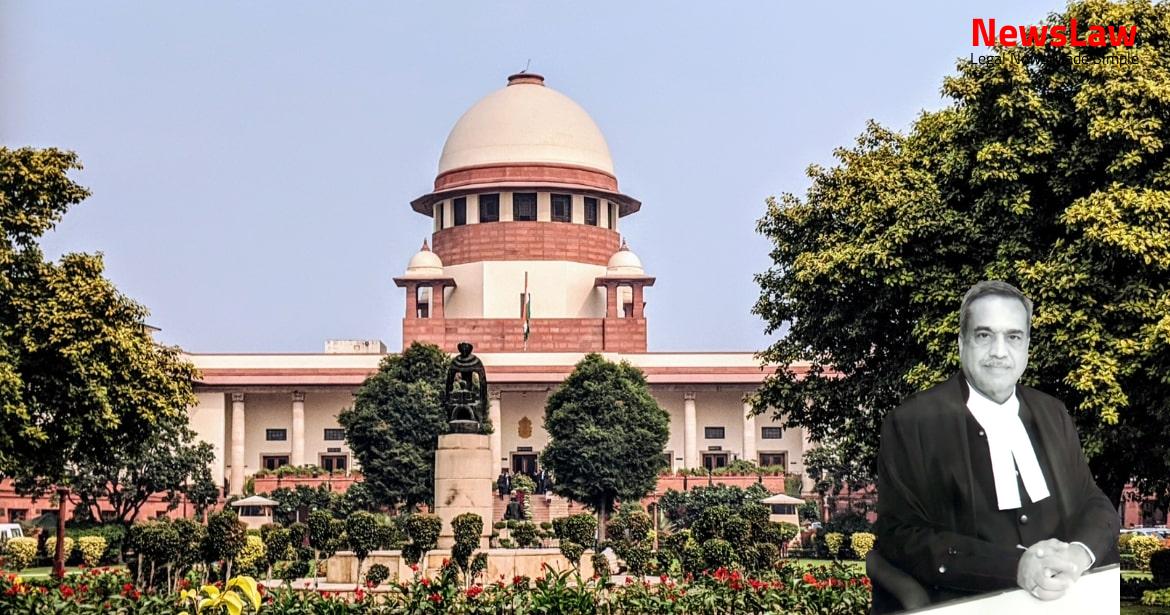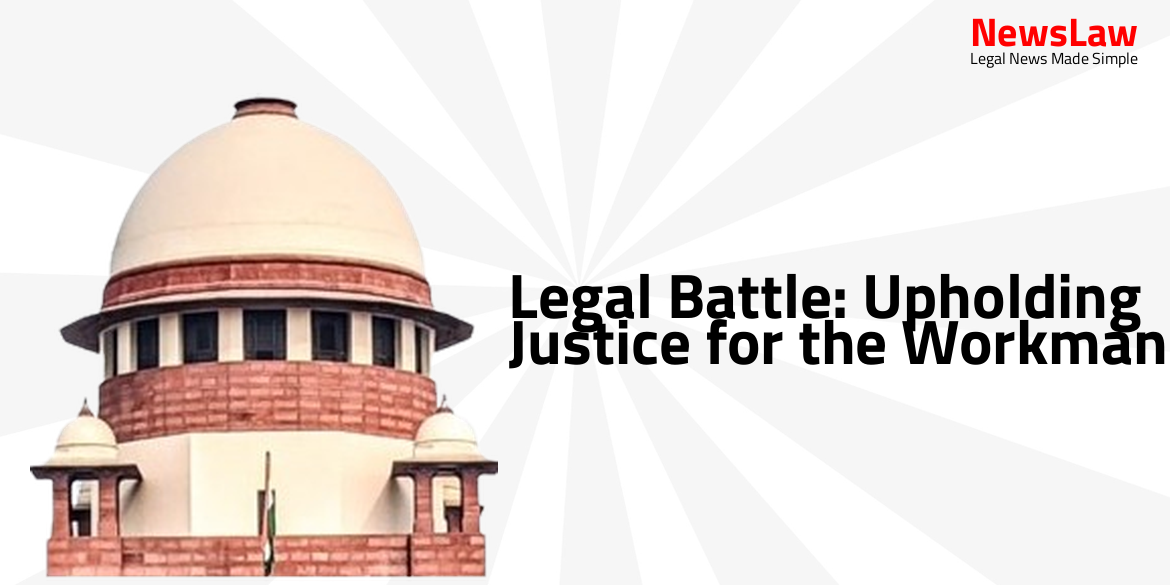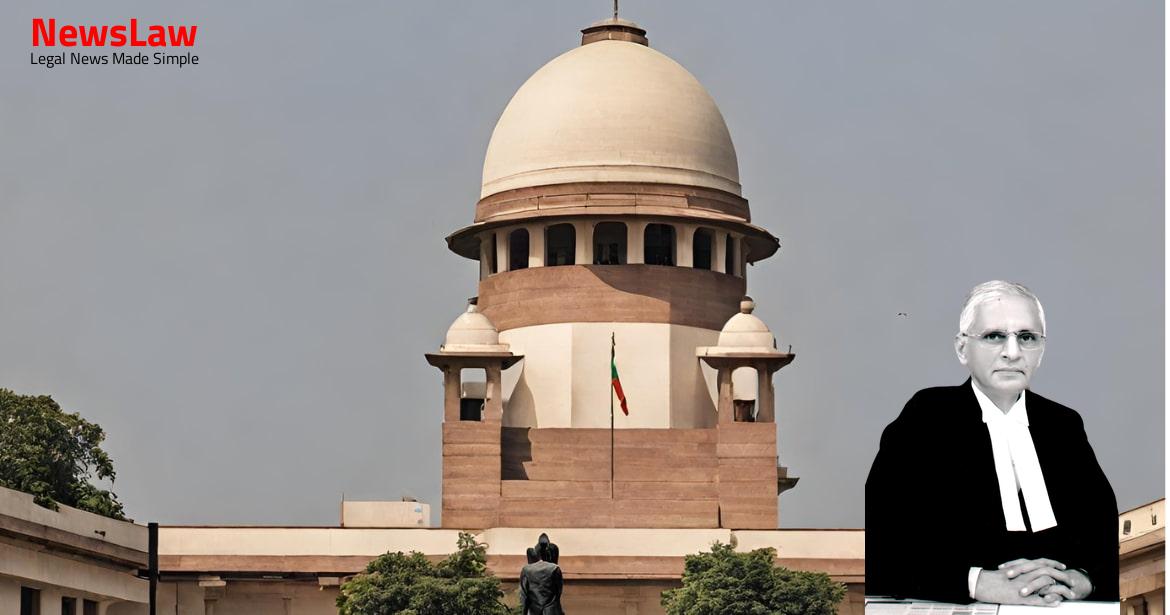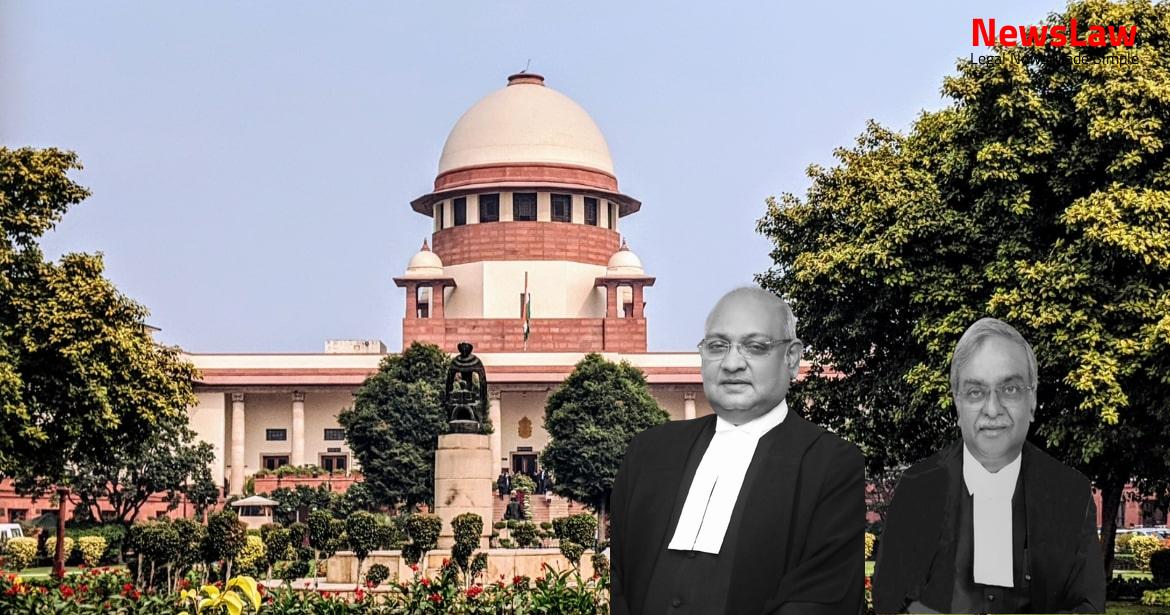The court’s legal analysis in a recent case delves into the jurisdictional aspect of determining professional charges for a valuer involved in the Corporate Insolvency Resolution Process. The verdict sheds light on the specific powers and boundaries of the court in assessing claims of professionals post the setting aside of a CIRP, emphasizing the need for precision in legal interpretation in insolvency matters.
Facts
- The appellant conducted valuation work at 115 sites of the Corporate Debtor.
- The fees agreed upon with the CoC were reduced by 25%, but the full amount could not be paid.
- The appellant filed an application under Section 60(5) of the IBC for non-payment.
- The NCLT dismissed the application stating it had become functus officio.
- The NCLAT remanded the matter back to the NCLT for the decision on CIRP costs.
- The appellant’s appointment fee and expenses were ratified by the CoC.
- The NCLT reduced the RP’s fee by 20% from what was ratified by the CoC.
- The first respondent cancelled the appellant’s appointment after the NCLAT set aside the CIRP.
- The appellant’s professional charges as a registered valuer were not determined by the NCLT or NCLAT.
- Outstation meetings between the appellant and the first respondent were also mentioned.
- The NCLAT rejected the contention of the appellant.
- An amount of Rs 50,000 had already been paid over.
- The appellant’s appeal was dismissed.
Also Read: Electoral Malpractices in Mayor Election
Arguments
- Appellant completed valuation of eighty-four sites and incurred expenses of Rs 52,000.
- An amount of Rs 35,000 was paid towards GST by the appellant.
- The main issue raised in the appeal is the determination of the claim of a professional valuer after the CIRP was set aside.
Also Read: Balancing Power and Transparency: Electoral Bonds Struck Down, Disclosure Mandated
Analysis
- The NCLAT declined to exercise its appellate jurisdiction.
- The NCLT determined it was functus officio regarding the appellant’s claim.
- Regulation 30A does not apply to the current situation as it is related to cases withdrawn under Section 12A of the IBC.
- The NCLT has jurisdiction to adjudicate disputes related to the insolvency of the Corporate Debtor.
- The Adjudicating Authority should assess claims made by the valuer regarding the nature of work done.
- The NCLT has the power under Section 60(5)(c) of the IBC to determine the payment to a valuer as part of CIRP costs.
- Caution is advised to ensure that NCLT and NCLAT do not overstep their jurisdiction in disputes not solely related to the insolvency of the Corporate Debtor.
- Expenses related to withdrawal under Section 12A of the IBC are covered under Regulation 30A(7).
- Expenses incurred during the insolvency resolution process are to be borne by the applicant and reimbursed by the committee upon ratification.
- Resolution professional costs are defined in Regulation 34 and include fees paid to various professionals and other expenses incurred by the resolution professional.
- Insolvency resolution process costs are defined in Section 5(13) of the IBC and include various elements such as interim finance, resolution professional fees, and costs to facilitate the insolvency resolution process.
- Regulation 31 outlines insolvency resolution process costs, including amounts due to essential suppliers, fees for authorized representatives, expenses incurred by the resolution professional, and other approved costs directly related to the insolvency resolution process.
- Clause (c) of Regulation 31 highlights expenses incurred by the interim resolution professional to the extent ratified by the committee.
- Regulation 33 specifies the costs of the interim resolution professional, including the fixing of expenses by the applicant and the requirement to deposit the determined expenses within a specified timeframe.
- In case of non-compliance with depositing the expenses, the bank guarantee received may be invoked as per the Code.
- The NCLT observed that the IBBI is the competent authority to deal with allegations against the RP regarding failure to discharge statutory duties.
- Section 217 of the IBC allows a person aggrieved by the RP’s functioning to file a complaint with the IBBI.
- IBBI, upon receiving a complaint, can direct an inspection or investigation if it believes the RP has contravened IBC provisions, rules, regulations, or IBBI directions.
- IBBI has the authority under Section 220 to form a disciplinary committee to review investigation reports and impose penalties if necessary.
- In the case of Gujarat Urja Vikas Nigam Limited vs Amit Gupta and Others, the Court clarified the jurisdiction of NCLT/NCLAT under Section 60(5)(c) of the IBC.
Also Read: Recall of Resolution Plan Approval: Legal Analysis
Decision
- The presence of a grievance redressal mechanism under the IBC does not take away the NCLT’s jurisdiction to consider the appellant’s claim.
- The grievance redressal mechanism is meant to address misconduct by the RP, not to determine claims of other professionals involved in CIRP costs.
- The appeal has been allowed, and the NCLAT’s judgment has been set aside.
- The case has been remitted back to the NCLT for a fresh determination of the appellant’s claim for professional charges as a registered Valuer appointed by the RP.
- The NCLT’s previous order from December 18, 2019, has been set aside, and CA No. 192 of 2020 is remitted to the NCLT for a fresh determination.
Case Title: ALOK KAUSHIK Vs. BHUVANESHWARI RAMANATHAN (2021 INSC 184)
Case Number: C.A. No.-004065 / 2020



